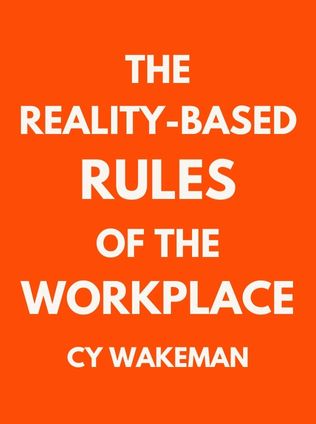
The Reality-Based Rules of the Workplace
Know What Boosts Your Value, Kills Your Chances, and Will Make You Happier
By Cy Wakeman
Published 04/2013
About the Author
Cy Wakeman is a celebrated speaker, business consultant, author, and trainer. With a background in social work, Wakeman brings a unique perspective to leadership and workplace dynamics. Her approach focuses on reality-based thinking, challenging employees and leaders to drop illusions and deal with situations as they are. Wakeman’s first book, Reality-Based Leadership, gained significant acclaim for its practical and no-nonsense advice on reducing workplace drama and fostering accountability. She has received numerous accolades, including the Certified Speaking Professional (CSP) designation from the National Speakers' Association and the Outstanding Leadership Award from the World HRD Congress in 2012. Her work is characterized by a keen understanding of human behavior and a commitment to helping individuals and organizations thrive.
Main Idea
In The Reality-Based Rules of the Workplace, Cy Wakeman presents a framework designed to help employees maximize their value and satisfaction in the workplace. The core concept is the "New Value Equation," which assesses an employee's value based on three components: current performance, future potential, and emotional expense. Wakeman argues that understanding and improving these areas can transform an employee’s experience at work, making dissatisfaction a choice rather than an inevitability. She emphasizes personal accountability, resilience, and the ability to adapt to change as critical skills for thriving in any work environment. The book provides practical advice for boosting one's value, navigating workplace dynamics, and maintaining a positive outlook despite challenges.
Table of Contents
- Introduction
- Part I: The New Value Equation
- Your Current Performance
- Your Future Potential
- Your Emotional Expensiveness
- Part II: The Five Reality-Based Rules of the Workplace
- Rule #1: Your Level of Accountability Determines Your Level of Happiness
- Rule #2: Suffering is Optional
- Rule #3: Buy-In Is Not Optional
- Rule #4: Say 'Yes' to What's Next
- Rule #5: You Will Always Have Extenuating Circumstances
Introduction
Cy Wakeman begins her book with a compelling argument: the key to workplace happiness and success lies within each individual. She challenges the reader to take responsibility for their actions, attitudes, and ultimately, their career outcomes. This introductory notion sets the stage for the entire book, emphasizing that one's professional value and satisfaction are largely self-determined. Wakeman proposes a transformative idea: workplace dissatisfaction is optional. By understanding and improving one's value to the organization, employees can shift from feeling unrecognized to being indispensable.
Part I: The New Value Equation
Your Current Performance
Wakeman criticizes traditional performance reviews as inadequate measures of true employee value, arguing that they often lack correlation with actual company results. She introduces a self-assessment method to evaluate current performance, encouraging employees to rate themselves based on concrete actions rather than intentions. This self-assessment covers various aspects, including goal achievement, consistency, initiative, and collaboration.
To illustrate, consider the following self-assessment questions:
Sign up for FREE and get access to 1,400+ books summaries.
You May Also Like
The Subtle Art of Not Giving a F*ck
A Counterintuitive Approach to Living a Good Life
By Mark MansonRich Dad Poor Dad
What the Rich Teach Their Kids About Money - That the Poor and Middle Class Do Not!
By Robert T. KiyosakiHow To Win Friends and Influence People
The All-Time Classic Manual Of People Skills
By Dale CarnegieQuiet: The Power of Introverts
The Power of Introverts in a World That Can't Stop Talking
By Susan Cain



















